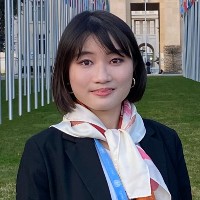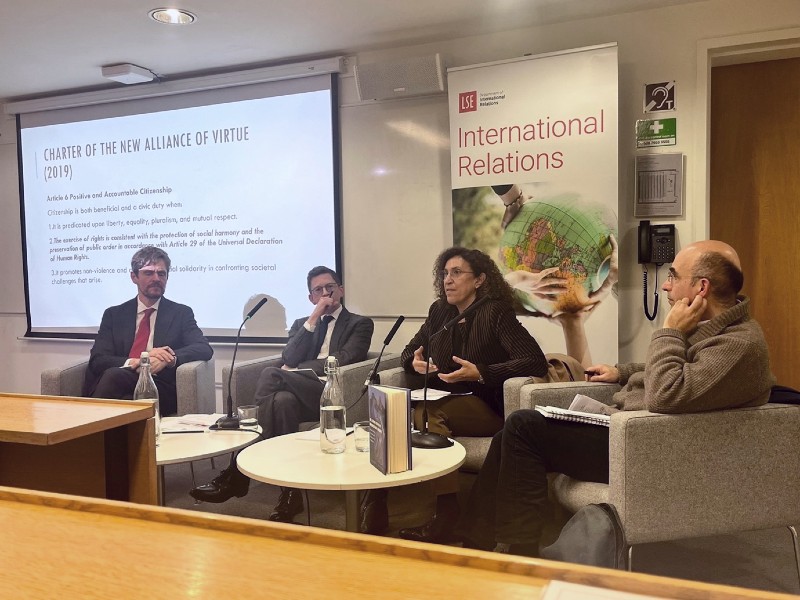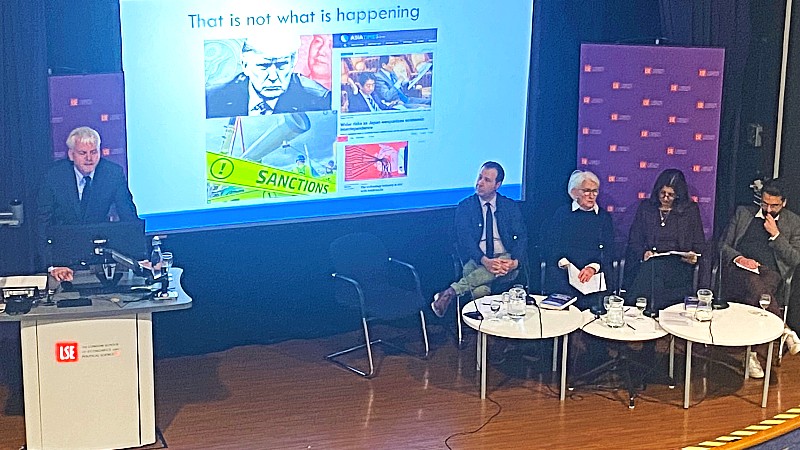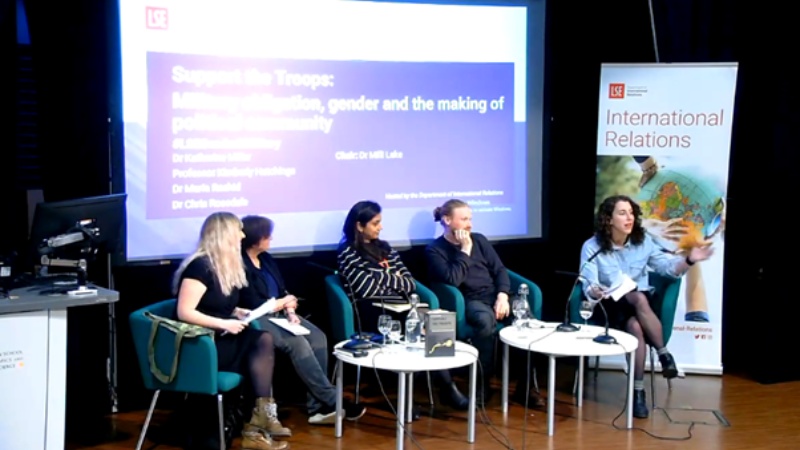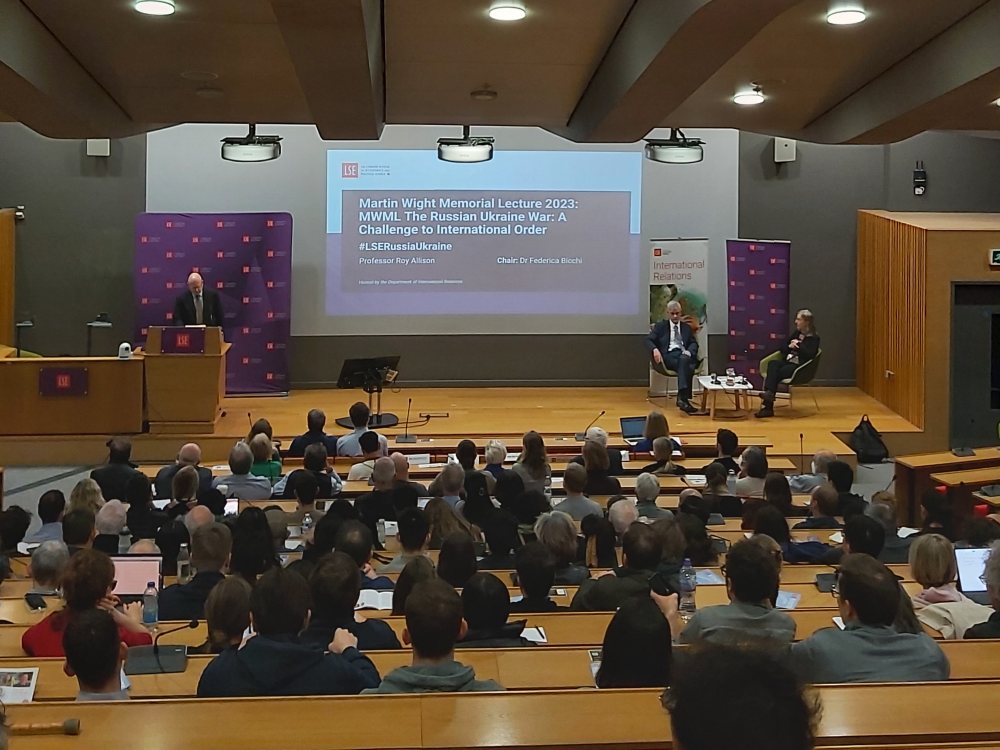On 27 February, 2024, the collaborative effort of the Women, Peace and Security (WPS) Centre and the LSE IDEAS Women in Diplomacy Project brought forth the “Women Working in Security, Peace Processes, and Diplomacy” panel. Professor Karen E Smith (IR) set the stage by introducing four distinguished LSE alumnae in the early and mid-stages of their careers in diplomacy, security, and peace to an engaged audience of LSE students.
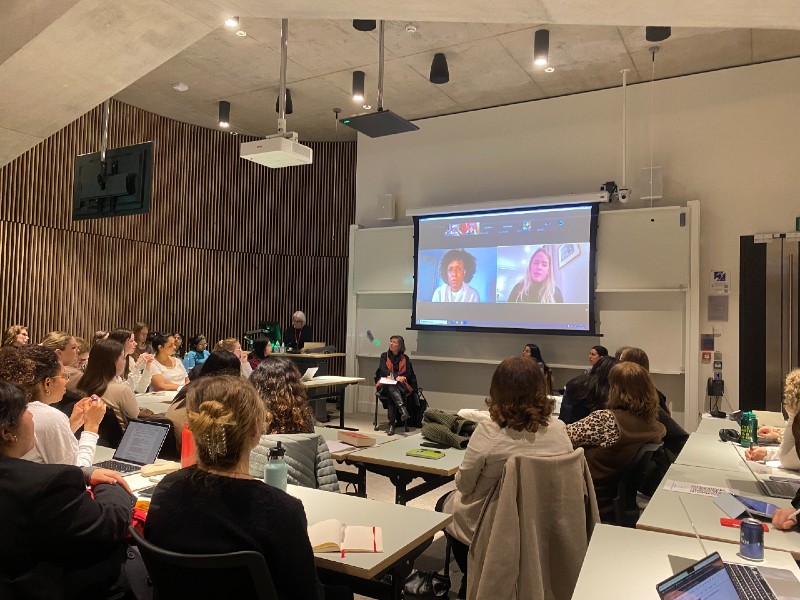
The first to share her insights was Oona Burke Johnson, Team Leader of the EU-Liberia Facilitation Office. Johnson candidly recounted her experiences navigating conflict zones and the unique challenges she faced. She recounted an incident where she was questioned for driving, a practice uncommon in the regions she operated in. Sharing vivid stories of her study abroad in Haiti and Argentina, she encouraged young students to “take every opportunity” to explore the world. Acknowledging the additional hurdles faced by women of colour, she shared a firm and warm note of “Be rooted in what you are and who you want to be.”
Be rooted in what you are and who you want to be.
Similarly, Kirtbir Chahal, Senior Nuclear Skills Policy Manager at the UK Department for Energy Security and Net Zero, reflected on how her identity as an immigrant and woman of colour shaped her perception of diplomacy. Despite initial scepticism that “women like me” would find a place in diplomacy, Chahal now leads high-level work at the intersection of nuclear, energy security, and foreign affairs. She observed existing gender bias within diplomacy, noting that some men delegates displayed less interest when the gender agenda entered the negotiation table. What has helped her most throughout such challenges? “People and the relationship, mostly with other women.” She trusts that such networks have provided her with a safe space for fellow women to openly share their struggles and support each other.
networks have provided her with a safe space for fellow women to openly share their struggles and support each other.
Next, Alice Courlander, Second Secretary at the British High Commission to Pakistan, shared her journey from consultancy to international trade before finding her place at the FCDO. Focused on building networks and government-to-government relationships in areas with insurgencies, Courlander believed that women are better negotiators as they are more skilled in” breaking barriers”. Navigating her career transitions, she emphasised the importance of perseverance.
Courlander believed that women are better negotiators as they are more skilled in” breaking barriers”. Navigating her career transitions, she emphasised the importance of perseverance.
Mariana Herrera-Salcedo Serrano, Second Secretary of Economic Affairs at the Embassy of Mexico to the UK, shared how she combines diplomacy and finance in her current role. Even in a male-dominated field, she believes one can always make positive contributions, such as creating networks of women and for women. On women’s leadership and meaningful engagement, she noted that: “It’s not about getting women into the room but about changing the whole system.” Her tips for LSE students? “If you can, choose who you work for and stick to them. And keep learning from them”.
It’s not about getting women into the room but about changing the whole system.
During the Q&A session, intersectionality emerged as the most hotly debated topic. All the alumnae stressed the importance of building transferable skills, highlighting relationship-building, communication, and public speaking. They also encouraged students to actively participate in LSE career events and leverage the rich alumni network for guidance and support.
Event report by Yitong Eton Lin, MSc International Political Economy
